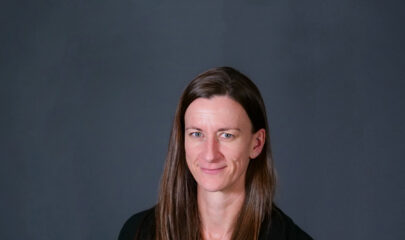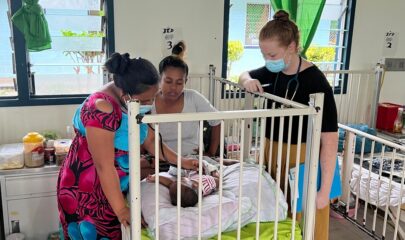In the remote villages of Colombia’s Nariño department, along the Pacific lowland riverways in the country’s southwest, people confronted with medical emergencies often have few options when it comes to seeking care.
There are coseros available to stitch machete wounds for the equivalent of $5 per stitch, and anyone bitten by a venomous snake can usually access traditional herbal remedies, though these can also come at a steep price — about “the same cost as a coffin,” according to one vendor.
Otherwise, there are no clinics, trained medical staff or health services available for many thousands of people across the region. The communities in which they live are not only isolated — often only accessible by canoe or on foot — but also hostage to pervasive levels of violence. In recent years, conflict between different armed groups vying for control of the drug trade and coca production has led to mass killings, displacement and other traumas.
“Armed conflict is chronic, as is the absence of a response by the authorities,” says Steve Hide, who currently leads Doctors Without Borders/Médecins Sans Frontières (MSF)’s work in Colombia. “The lack of trained medical staff and health facilities make it impossible for people to get treated in an emergency, or to access basic healthcare or mental healthcare.”
Hide recently travelled with an MSF health team along some of Nariño’s isolated riverways to assess needs and provide medical services.
While the logistics of getting teams into such inaccessible areas can be daunting, it is the cycle of violence that makes delivering healthcare such a challenge. MSF first started working in Colombia in 1985. With decades of experience working in conflict zones, MSF is one of the few organizations able to work in these territories, drawing on a long reputation for independence and neutrality to negotiate access and earn trust.
But with so many unmet medical needs, MSF hopes other care providers can also find a way to work in the region.
For now, the mobile clinics MSF brings to these areas are critical. Many people have not had a check-up for years, and the clinics last four days so people from nearby villages can attend. One of MSF’s goals for 2021 is to place medical teams more permanently in these communities, reducing the time and effort of travel and providing more continuous assistance to everyone who needs it.
“Our current strategy is to continue returning to these isolated conflict areas, the worst affected in Colombia, wherever people have high needs,” says Hide.
“So far, that’s everywhere.”


